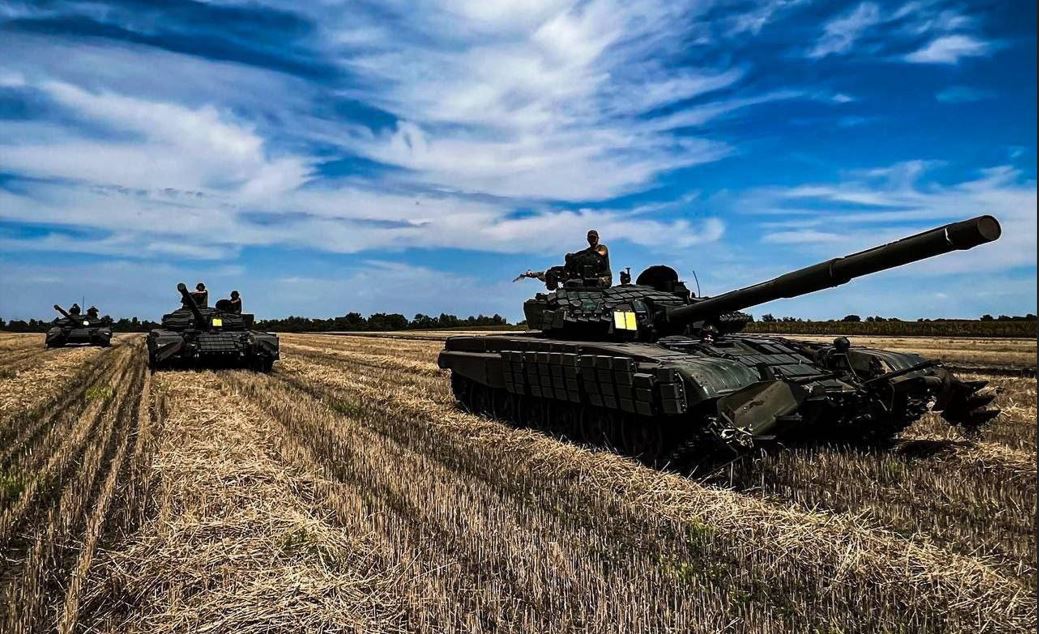This article originally appeared in the Hub.
By Richard Shimooka, September 11, 2023
A few weeks ago David Ignatius, a highly respected columnist at the Washington Post penned an article entitled “How the U.S. sees Ukraine’s push: No stalemate, but no breakthrough,” offering a fairly detailed insight into the broad thinking within the U.S. government on the current and future state of the war. Perhaps it is a bit of a surprise that the article has engendered a vigorous debate on the state of Western support, and the state of the war after a disappointing summer of campaigning, exposing an underlying tension between Ukraine’s supporters.
The underlying cause of the debate, starting with Ignatius’ article, was the disappointing summer counteroffensive launched by Ukraine to take back its territory. Thus far it has taken several villages and may be able to press to the logistical hub of Tokmak, which would likely result in the Russian Federation withdrawing from a significant portion of their current defensive lines in order to shorten the distance of their current ones.
While progress has been fitful, and may ultimately only take a portion of Zaporizhzhia Oblast in the south, the counteroffensive’s outcome has certainly not lived up to some of the lofty predictions that Ukrainian officials had been making before it was launched, with some openly discussing plans for Crimea after it was retaken. The failure has led to finger-pointing from observers and officials from different sides. It’s worth taking stock and also understanding where the war may go from here.
While the counteroffensive is still ongoing and may prove to have more success in the coming weeks, there are a number of factors behind its early disappointment.
Many of Ukraine’s new units were raised from scratch and newly trained on their Western systems. Their combat performance has been mixed. At the same time, there have been complaints about the training they received from NATO, particularly in a recent Kyiv Independent article that suggested that a significant portion of it was not relevant to the dynamic battlefield conditions. Moreover, the biggest criticism, one pushed by the Ukrainian government itself, is that delays in Western equipment are the cause.
Ignatius’ article provides the perspective of some of Ukraine’s key allies. It identified criticisms of Ukrainian tactical, operational, and strategic decision-making as another source of problems. This follows other criticism over the quality of some Ukrainian commanders, many of whom were trained with Soviet-style command approaches that have proven less-than-effective for the current battlefield.
Perhaps the most limiting factor for Ukraine is manpower. Simply put, a country with one-third the population of Russia will inherently be at a disadvantage. Even if their forces were to be fully equipped with Western equipment, there are only so many formations available to push Russia out. Mobilizing more Ukrainian population is politically challenging—not only is it unpopular, it also will further damage the country’s ailing economy, which will require more foreign support to keep afloat.
The contours of the debate reflect an emerging dynamic within Ukraine and its allies. It has the potential to damage the public consensus that has sustained support from allied countries. This point was made earlier this year by then-U.K. Defence Secretary Ben Wallace when he remarked that Ukraine risked looking ungrateful through its demands and criticisms of foreign support. While he received criticism for the headline, the context of his comments was not well reported; Wallace’s point was that support for Ukraine in allied countries requires persuading skeptical politicians and voters to continue aid, and that continued criticism from Ukraine on these efforts will undermine this weak coalition. This has been a persistent weakness of Ukrainian officials, who are often overstating their points and ignoring the political consequences, to the irritation of their allies’ leaders.
But even if the counteroffensive’s progress to date has fallen short, there are many encouraging signs for a favourable overall outcome of the war for Ukraine.
As noted in an earlier column, Putin’s military strategy has been to overcome his forces’ massive material deficiencies by throwing poorly trained units into battle to wear down Ukrainian forces. This is largely in the hope that over time the West will exhaust its goodwill and force Ukraine to sue for peace. That has not changed over the past year, even though his anticipated horizons for a Western political reversal have not emerged. The question remains: how long will Putin, or his enablers, be willing to sustain the war? At present, Moscow’s demands for a peace plan would require Ukraine to accept Russia’s annexation of Ukrainian territory seized at the start of the invasion, which is completely unacceptable to Kyiv, which, for its part, has demanded a return to the 2014 borders—the date of the original Russian incursions.
Still, there are some reasons to be hopeful.
The first and most important is that the battles are improving the Ukrainian army’s capability for future campaigns. The experiences of the summer will be distilled and disseminated to these units and future ones raised by Ukraine and its allies. Anecdotal battlefield accounts suggest that Western armoured vehicles’ survivability is much greater than Ukraine’s existing systems. Moreover, training (especially around battlefield medicine) is seen as far superior in the West, providing a higher survival and recovery rate for wounded soldiers. Essentially, these new formations will become increasingly battle-hardened and capable of adapting to new challenges they will face.
The Russians, however, have the opposite challenge. Units that have been repeatedly decimated in combat, and then rebuilt using conscripts, will continue to perform poorly and remain extremely limited in their ability to do much more than contribute to defensive operations. These troops may be able to learn updated tactics to counteract new Ukrainian ones but, they only do so on a limited basis. Furthermore, many of the recent losses are occurring in specialist capabilities, such as artillery, which will severely undermine Russia’s future combat capabilities.
Thus, while a military victory may not be in grasp in 2023, it bodes well for Ukrainians’ ability to retake more territory in 2024. As Ukrainian forces’ capabilities increase relative to Russia, they should be able to realize greater territorial reversals than what was achieved this summer. Such gains will also require Moscow to send even more soldiers into the battle and suffer even greater casualties.
All that being said, Ukraine’s continued success relies completely on its allies’ continued military, economic, and political support. This brings the conversation back to the Ignatius article and the debate it brought to the fore. Despite the disappointment of the summer counteroffensive, a path towards reaching the goal of removing Russia from Ukrainian territory is readily apparent. There are a number of efforts that will smooth the collective efforts, such as streamlining and improving training systems, as well as the more timely delivery of certain capabilities. As analyst Michael Kofman observed in an excellent discussion with noted historian Stephen Kotkin, part of the reason why the U.S. Government was forced to release cluster munitions to Ukraine was due to a continued production shortage of high explosive shells—in significant part due to European and Canadian refusal to dramatically increase the production of these items. Removing these obstacles and investing in Ukraine’s victory should be a major focus.
At the same time, Ukrainian officials must remain tactful in how they approach their allies and communicate their requirements, as well as be open to advice. Ukraine’s supporters are aware of the horrific nature of the Russian invasion which is a key factor in the fairly broad popularity the country enjoys at the moment—but this should not be taken for granted, and Kyiv must do everything to maintain it for as long as the war lasts. Consequently, it must resist the temptation to openly criticize its allies’ governments to obtain more support. While circumventing allies’ governments to appeal to their populaces and mobilizing grassroots support may have been successful in the past, it will negatively detriment their long-term prospects.
As the war approaches its second-year mark, Ukrainians have reason to be optimistic about its course. While they remain engaged in a pitched struggle for its survival, a path to ultimate success is now evident. What it requires is a sober assessment within Kyiv and its allied capitals about what is necessary, and keeping that system operating until the goal is reached.
Richard Shimooka is a Hub contributing writer and a senior fellow at the Macdonald-Laurier Institute who writes on defence policy.






